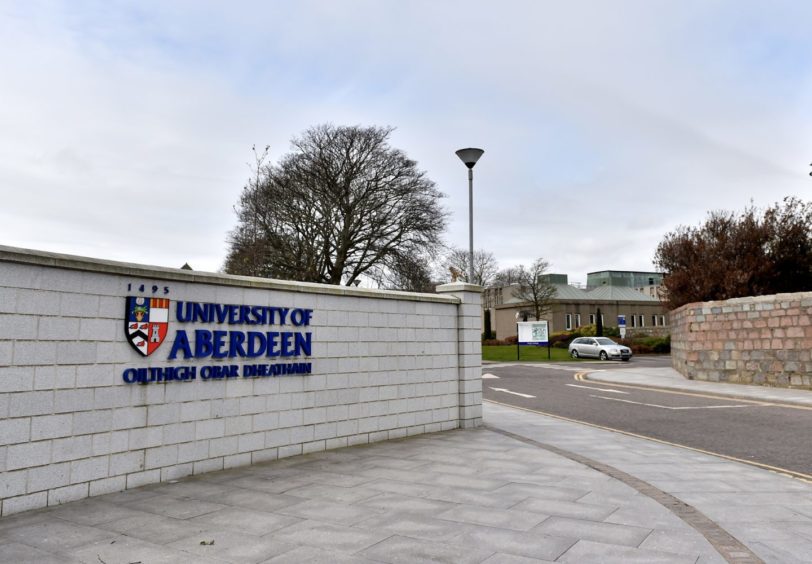As new students prepare to embark on their 2024 academic journeys, universities across the country have been ditching the freshers label in favour of the more modern, inclusive “Welcome Week”… with less focus on drinking alcohol.
But is pivoting towards alcohol-free socialising the right thing to do to make uni more welcoming for everyone, or, are students potentially missing out on some valuable life experiences from the traditional booze-fuelled freshers nights out?
We’ve asked an Aberdeen University student president, and our readers, for their thoughts…
What is Welcome Week, and what’s happening to Freshers?
In the past, Freshers’ Week has been mainly associated with pub crawls, binge drinking and hangovers.
This rebrand being adopted by many Scottish universities is an effort to distance this introductory period away from this boozy stereotype and provide a wide range of activities for all students, who come from a range of different backgrounds and cultures.
Along with the name change to Welcome Week, the events lined up for new arrivals are less alcohol-focused, with a wide variety of activities for students to take part in.
The University of Aberdeen is one of the many Scottish universities using the title Welcome Week for the first week of term this year to create a warm introduction for newcomers and appeal to as many students as possible.
From a yoga morning to a secondhand market, the University of Aberdeen’s Welcome Week schedule is packed with events unrelated to drinking.
Student president says Welcome Week reflects changing student body
Christina Schmid, student president of Aberdeen University Students’ Association (AUSA), has supported the University of Aberdeen’s shift from Freshers to Welcome Week.
She believes that the rebrand is necessary to appeal to today’s more diverse student body and reflect how the new wave of students socialises with each other.
She said: “The change from Freshers’ to Welcome Week is part of a broader effort to provide a range of events that appeal to a more diverse student body. This name change is just one step among many.
“Welcome Week is designed not only for first-year undergraduates but for all students—whether they’re returning for another year or beginning postgraduate studies.
“The aim is to create a sense of belonging for everyone at the university, not just new arrivals.”
Christina says there has been increased demand for a wider variety of activities for new students to engage with.
“This shift reflects a broader change in how young people choose to socialise today, often favouring activities based around interests and hobbies over traditional drinking culture.
“The student demographic is diverse and has evolved over the past ten years. It is clear that our offerings need to reflect these changes.
“It is essential we cater to the needs, interests and comfort of all students.”
Change to benefit all students?
Christina added: “The student body today is much more varied than it was a decade ago, with different backgrounds, interests, and social preferences.
“We want to create an environment where as many students as possible feel included and part of the community.
“Many young people are moving away from a sole focus on alcohol-centric events and are naturally leaning towards more varied social experiences.”
Christina believes there are many benefits to reducing the emphasis on alcohol during Welcome Week, she said: “It creates a more inclusive environment, places a stronger emphasis on safety, and encourages different ways of socialising.”
“By moving away from predominantly alcohol-focused activities, we ensure more students feel comfortable and included within the university community.”
“This approach benefits not only those who prefer non-alcoholic events but also enhances the overall student experience by promoting a wider variety of social activities that can be enjoyed throughout their time at uni.”
What do readers think of Welcome Week?
On the lead-up to Welcome Week, we asked The Press and Journal readers on social media for their opinions on the recent rebrand of Freshers’ Week and the shift away from heavy drinking sessions.
One reader expressed that students should try the traditional experience at least once before casting it aside.
Dannielle Keyland said: “The pub crawls, the nights out in the town are traditional of Freshers Week.”
“But if there’s some people that don’t drink alcohol for whatever reason there’s always other events being held by the university for these people to make friends.”
“I think new and existing students should at least try the experience once, but then if it’s not for you, at least you can say it’s not something you’re keen on.”
“But you can still go to nightclubs and pubs and not drink alcohol to have a good time.”
Other readers believe freshers should be left in the past, including Geordie Hamilton, who said: “Let’s hope the boozy pub crawls ARE now a thing of the past. I don’t understand how students can afford to get p*ssed in pubs when the cost of a pint exceeds £5.”
Sam Milne agrees, “Alcoholic mentality defending outdated ways for students to settle into a new city. Not everyone needs alcohol to have a good time.”
However, not everyone agrees.
Some readers expressed that the traditional freshers experience is good fun that every student should take part in, like Leanne Stewart, who said: “Definitely a tradition that all students should join in with. I loved it. Call it student bonding time, let the ice break and have fun.”
David Ewen expressed that Freshers’ Week is prime time for heavy drinking sessions, “Best time to do it, student discounts, body more able to handle alcohol and it’s good bonding.”
Stephen Heath said, “Freshers week was great. All of the social events were the best time to meet people. It was good for the students.”







Conversation